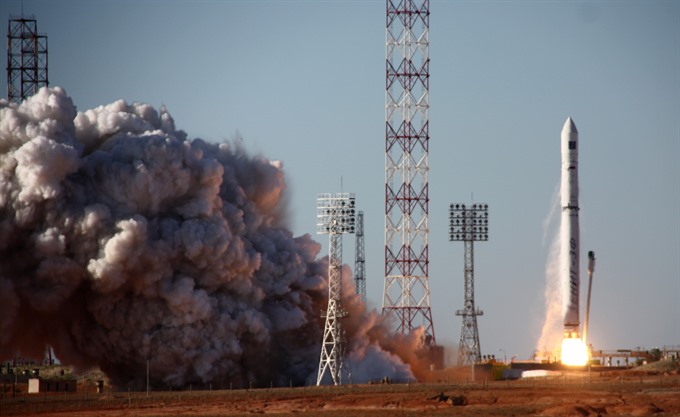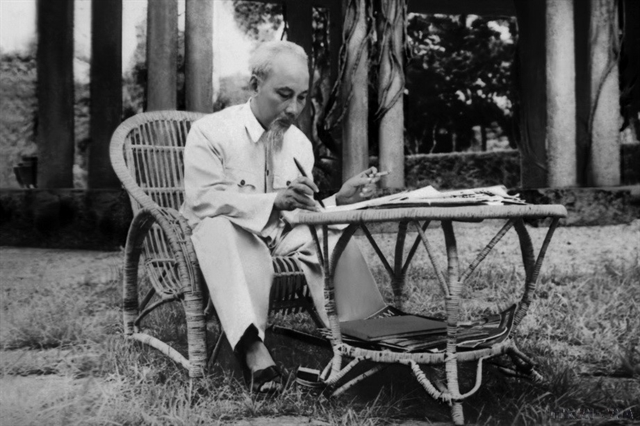 World
World

Russia has lost control of its only space radio telescope but officials are working to re-establish communication, the country's beleaguered space agency said on Monday.
 |
| In this file photo taken on July 18, 2011 a Zenit 3F rocket carrying the Spektr-R radio astronomy observatory blasts off from the Russian leased Kazakhstan’s Baikonur cosmodrome. Russia has lost control of its only space radio telescope but officials are working to re-establish communication, the country’s beleaguered space agency said. — AFP/VNA Photo |
MOSCOW — Russia has lost control of its only space radio telescope but officials are working to re-establish communication, the country’s space agency said on Monday.
The incident is the latest setback for Russia’s space industry, which in recent years has suffered the loss of spacecraft, satellites, and a failed manned launch.
Roscosmos said a US observatory detected signals from Russia’s gigantic Spektr-R, or RadioAstron, telescope, which stopped responding to commands from Earth last Thursday.
Roscosmos said that meant the onboard systems were working independently.
The Spektr-R telescope was launched into orbit in 2011 to study black holes, neutron stars and Earth’s magnetic field, among other subjects.
Complete with ground-based observatories and a 10-metre-long antenna, RadioAstron is one of the largest telescopes ever made.
A new failed attempt to regain control of the telescope ended at 2130 Moscow time (1830 GMT) on Monday, Russian news agencies quoted a Roscosmos official as saying.
Previous attempts to get in touch with the telescope were unsuccessful.
"I cannot bury a satellite which is alive for sure," Yuri Kovalev, head of the RadioAstron project, said in written comments.
"It’s like asking for a comment about a sick person when doctors are fighting for his life," said Kovalev, a physicist with the Lebedev Physical Institute of the Russian Academy of Sciences in Moscow.
This year Russia is planning to launch another telescope, the Spektr-RG, whose task will be to put together a "complete map of the Universe," the space agency has said.
The Spektr-R telescope was only supposed to serve through 2014 but its lifespan has been extended.
Some experts say the Spektr-R telescope was one of Russia’s few successful space projects.
Last October a Soyuz rocket carrying Russia’s Aleksey Ovchinin and US astronaut Nick Hague failed just minutes after blast-off, forcing the pair to make an emergency landing. — AFP




